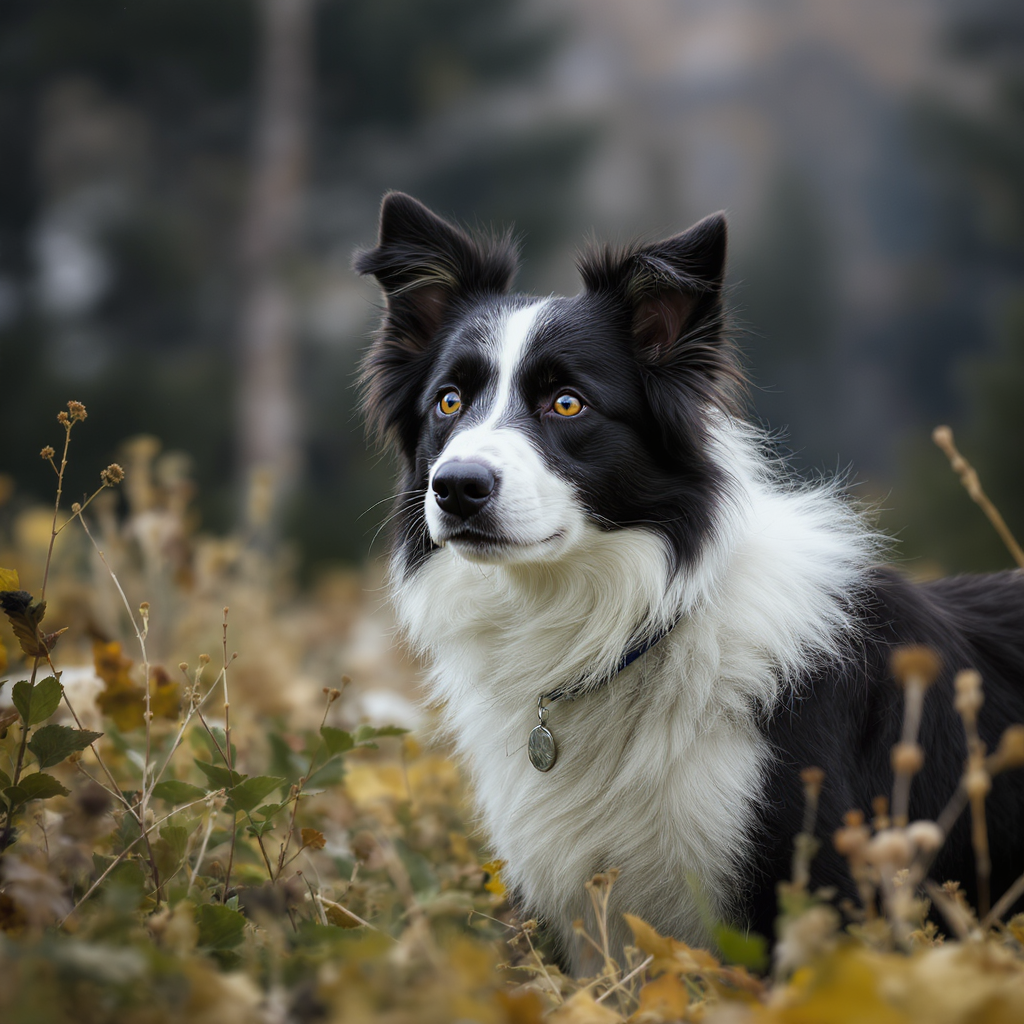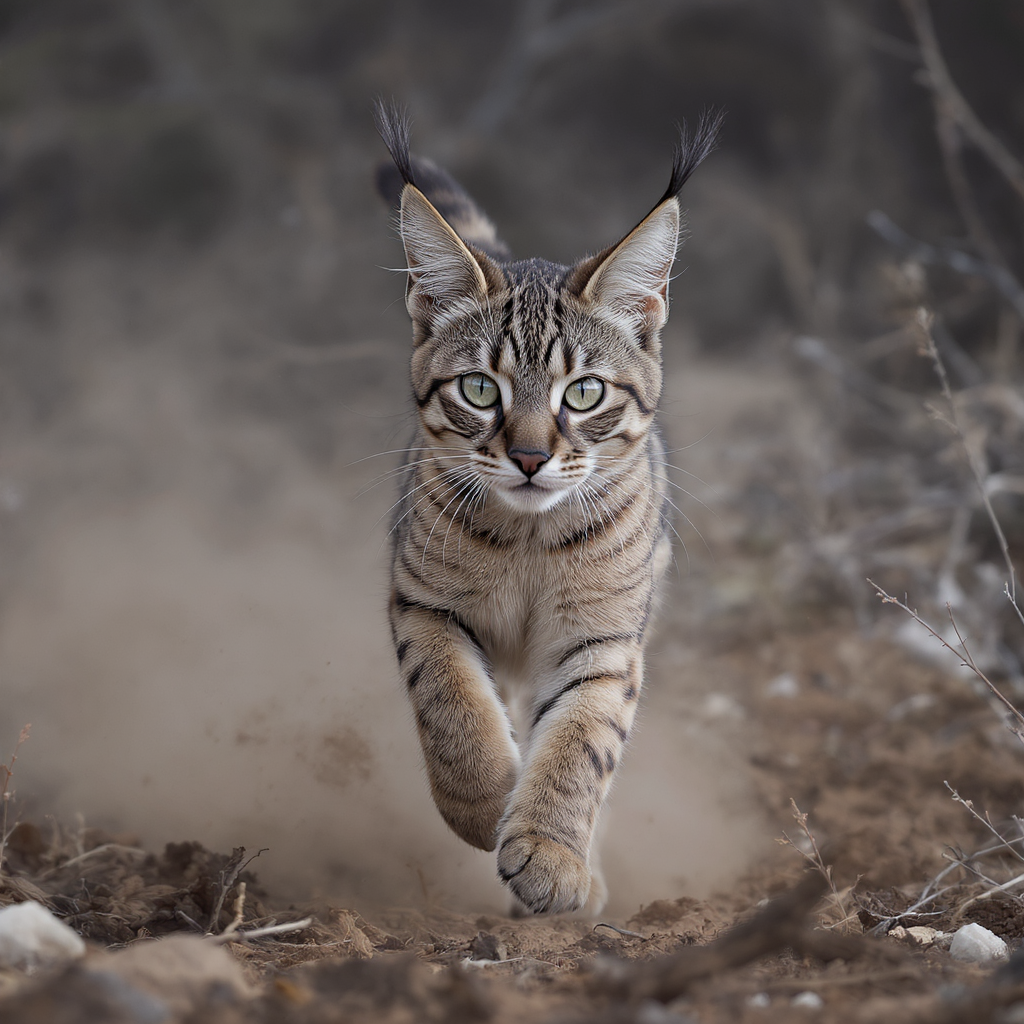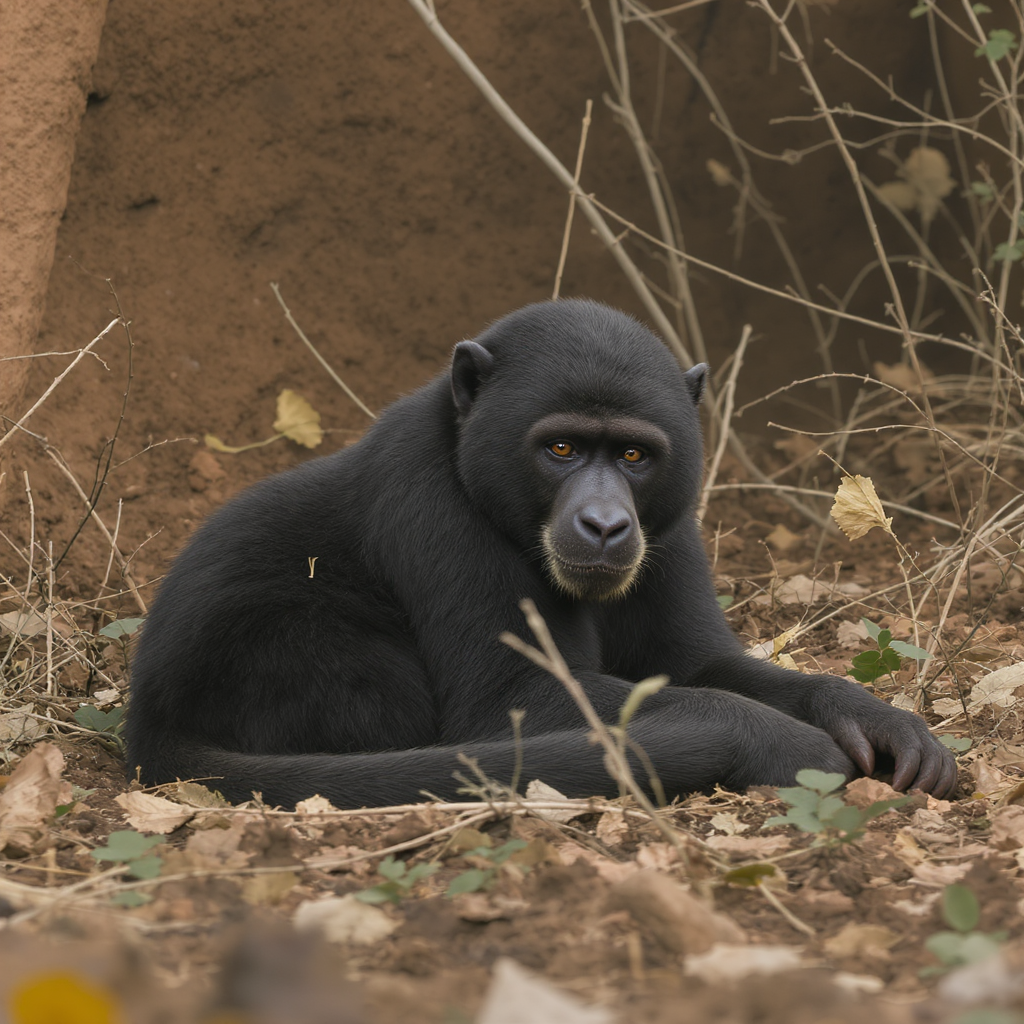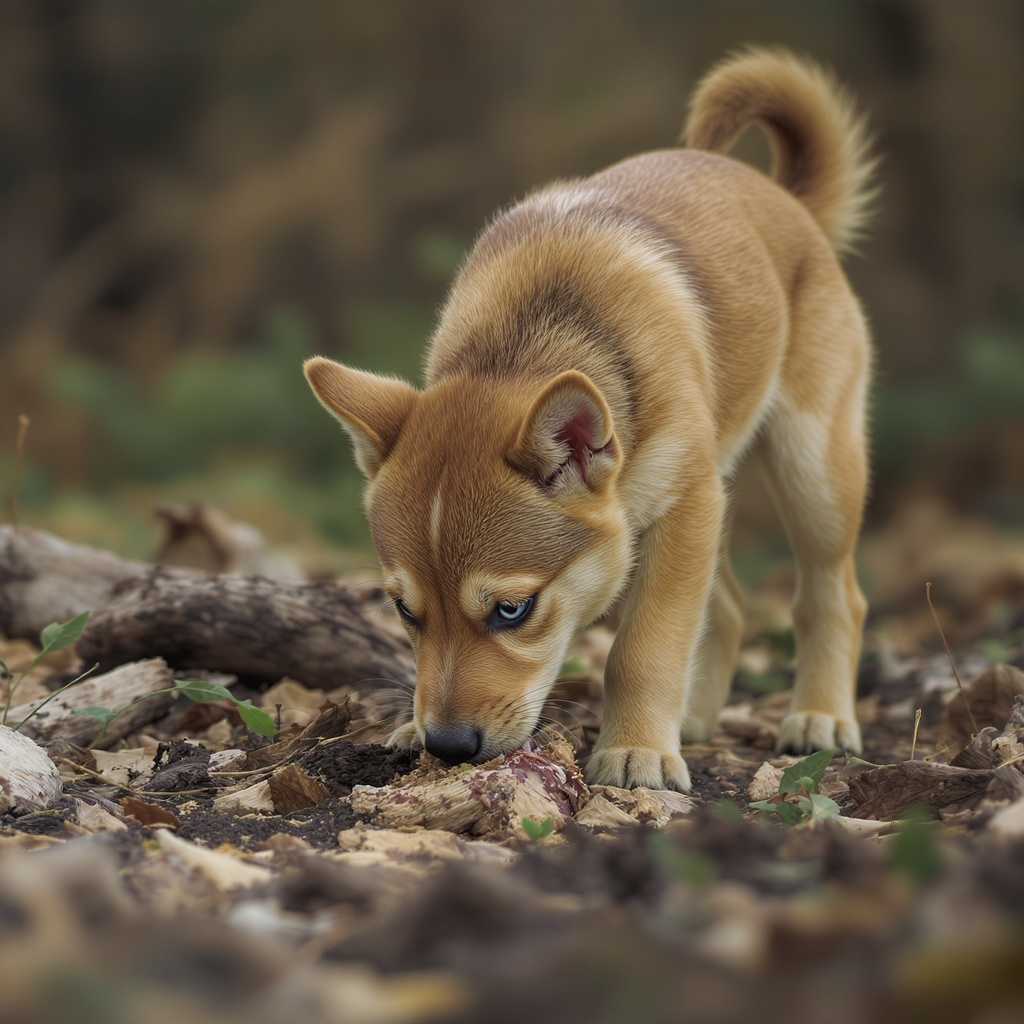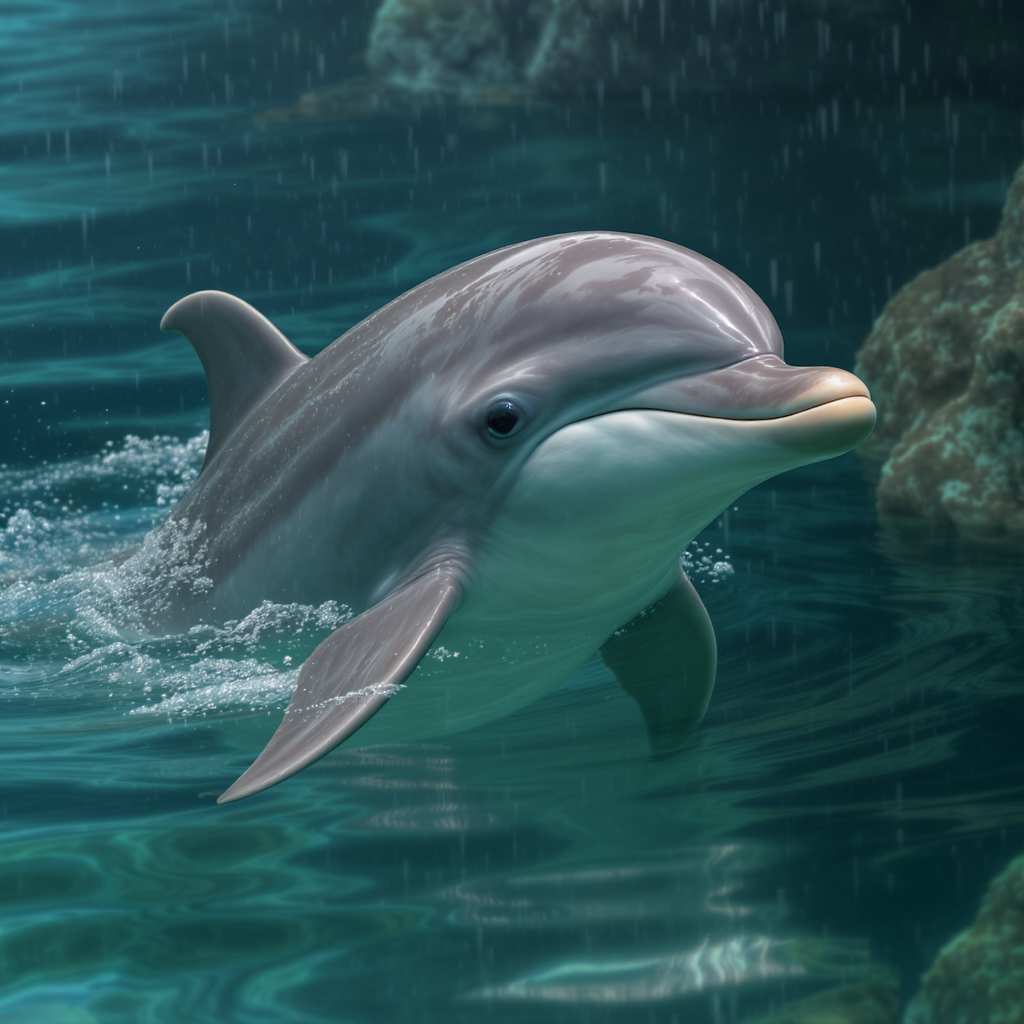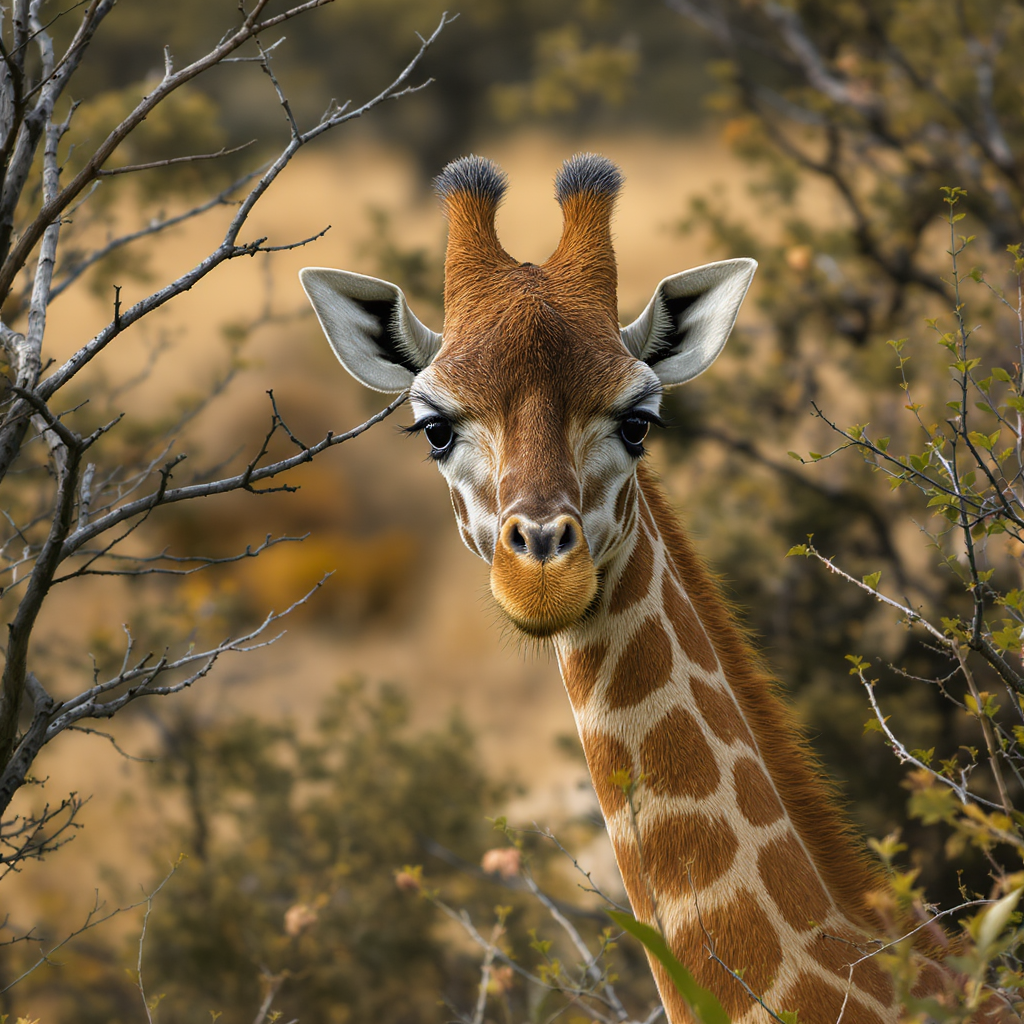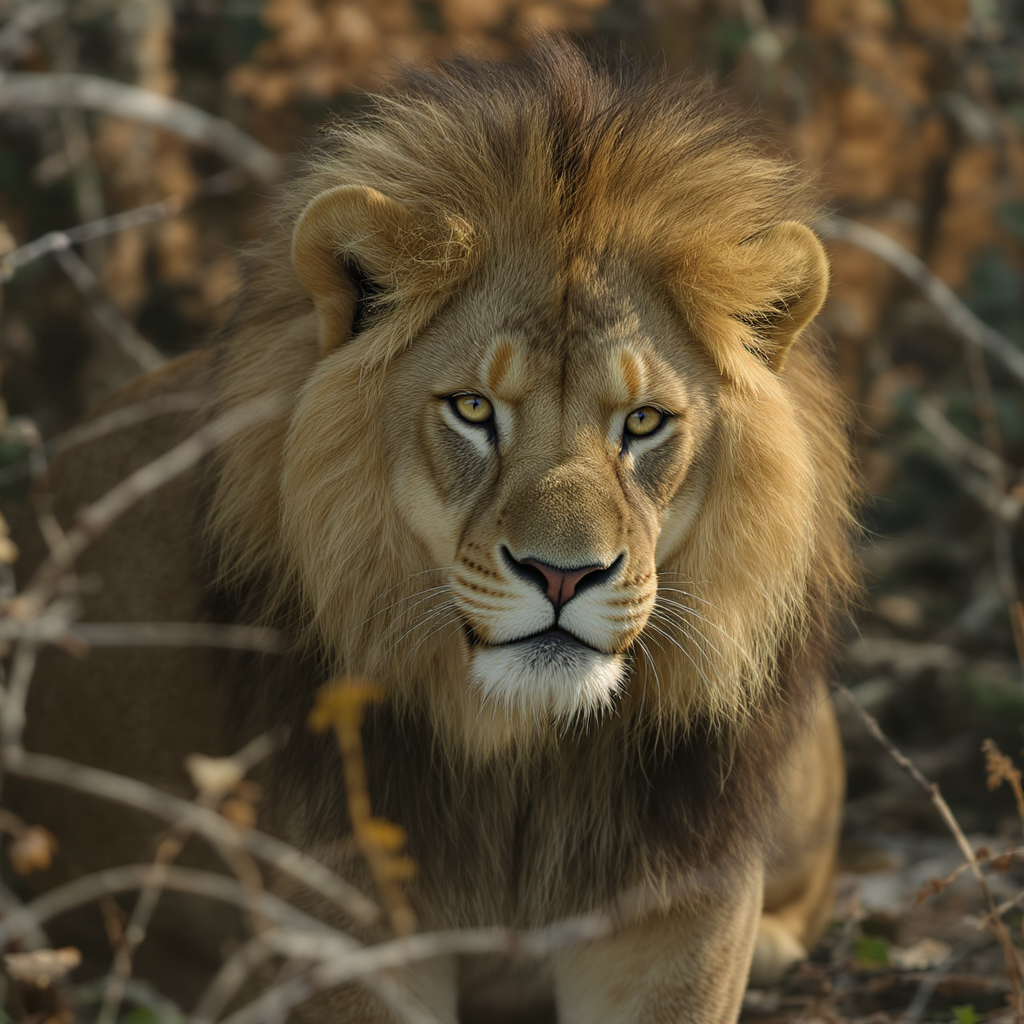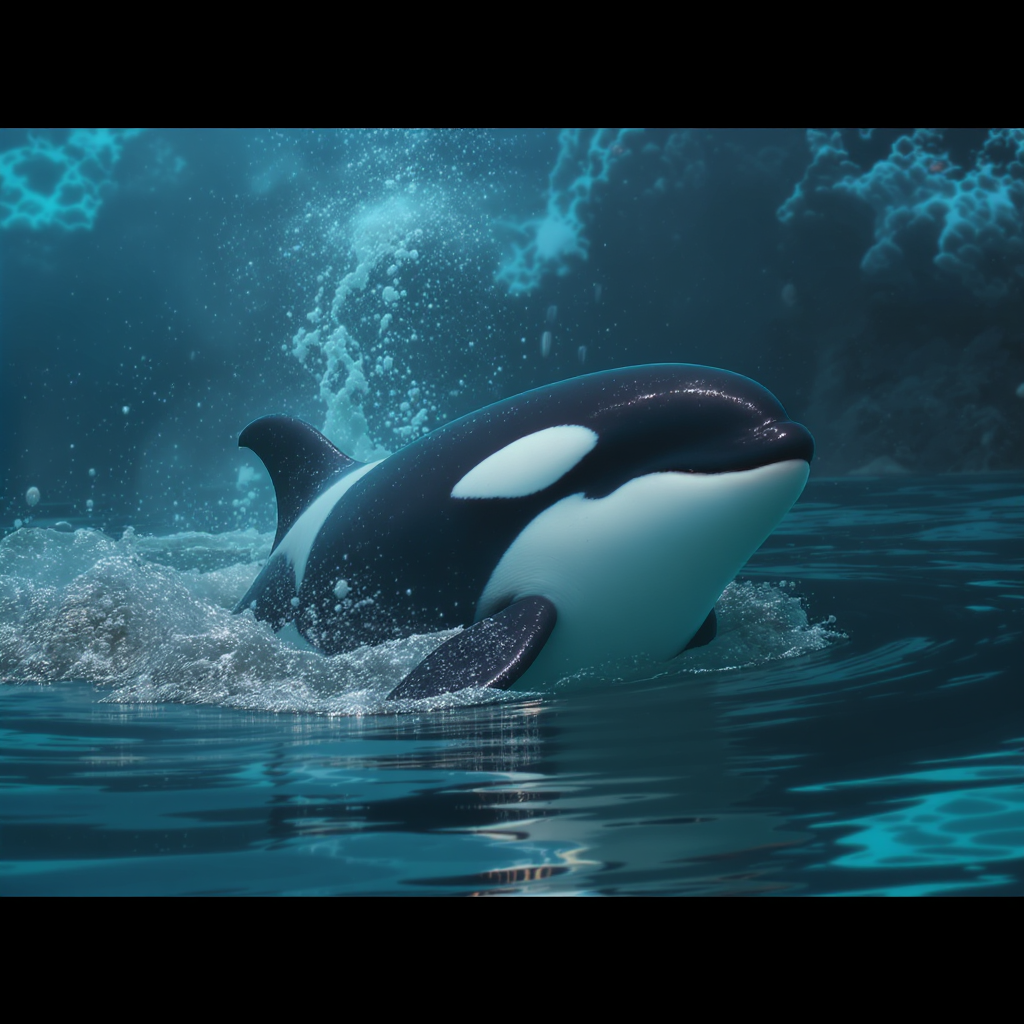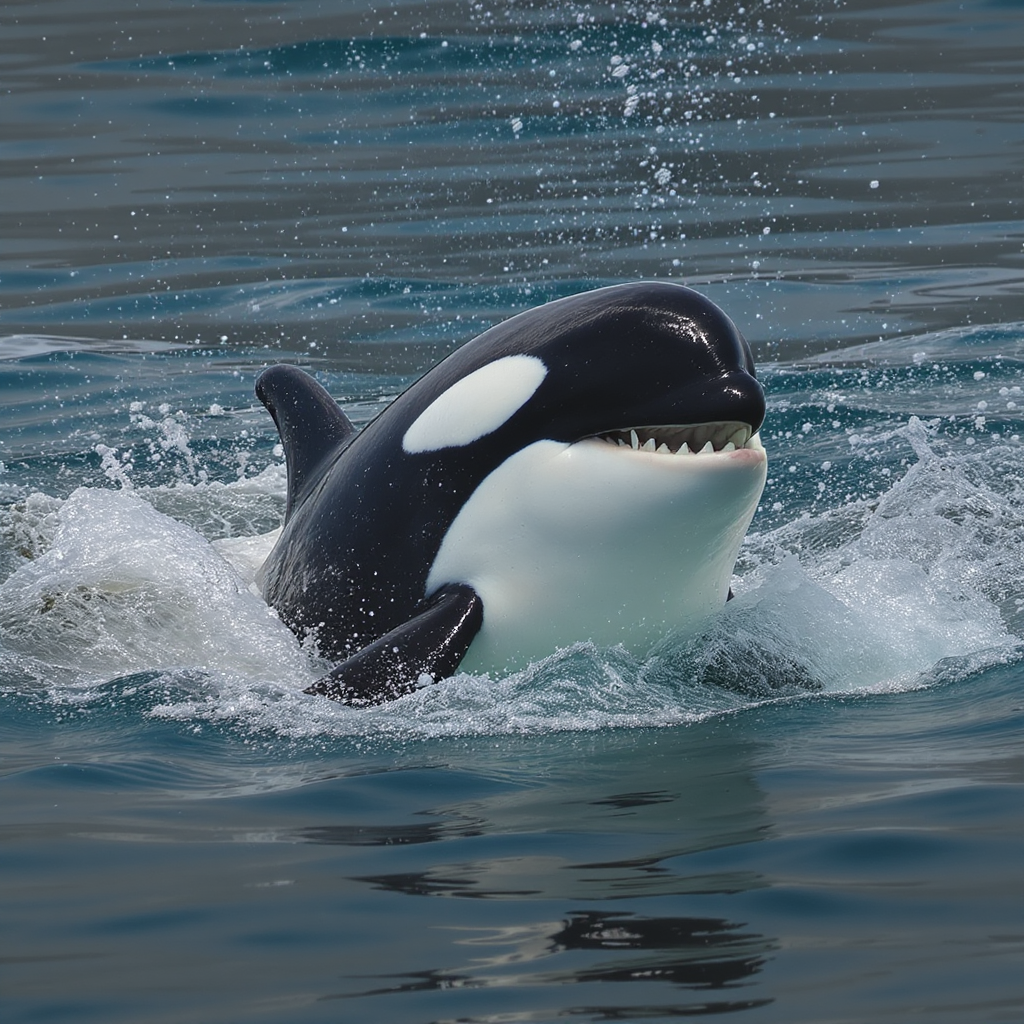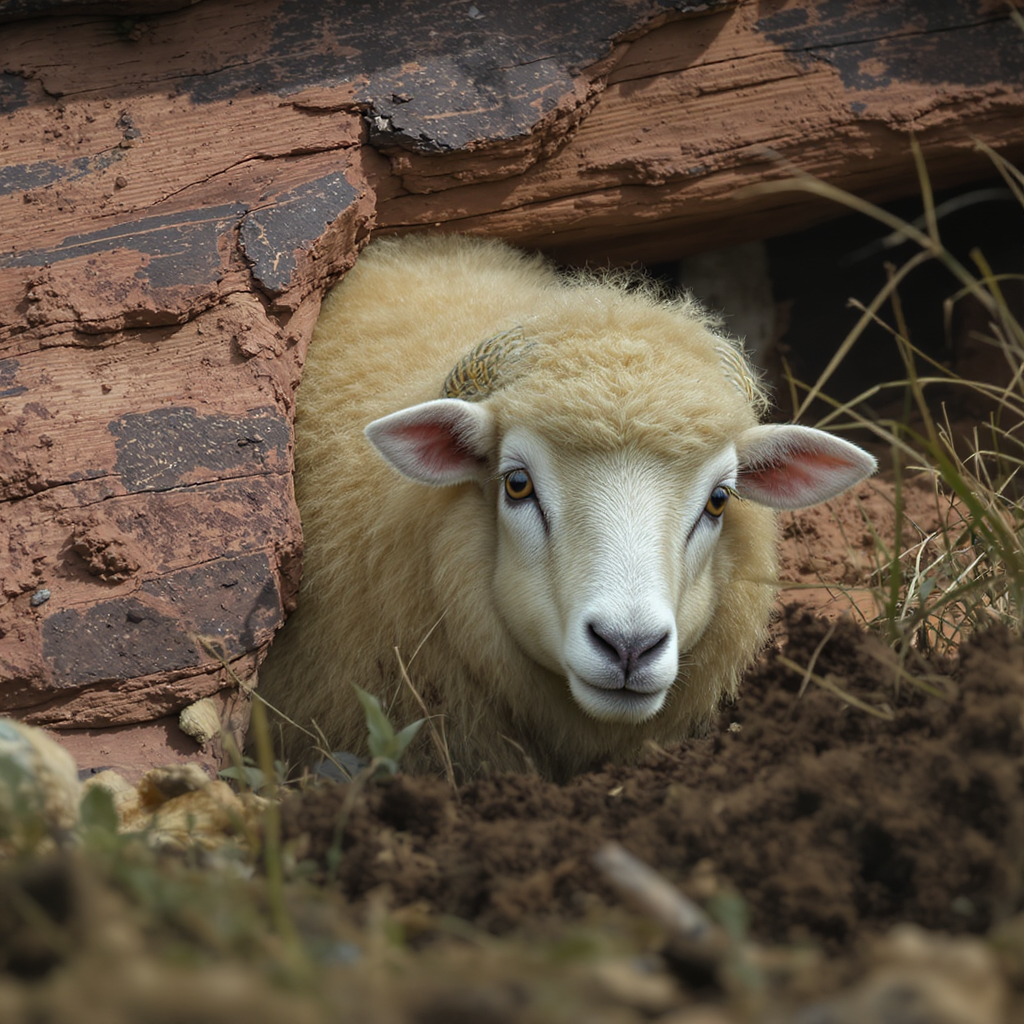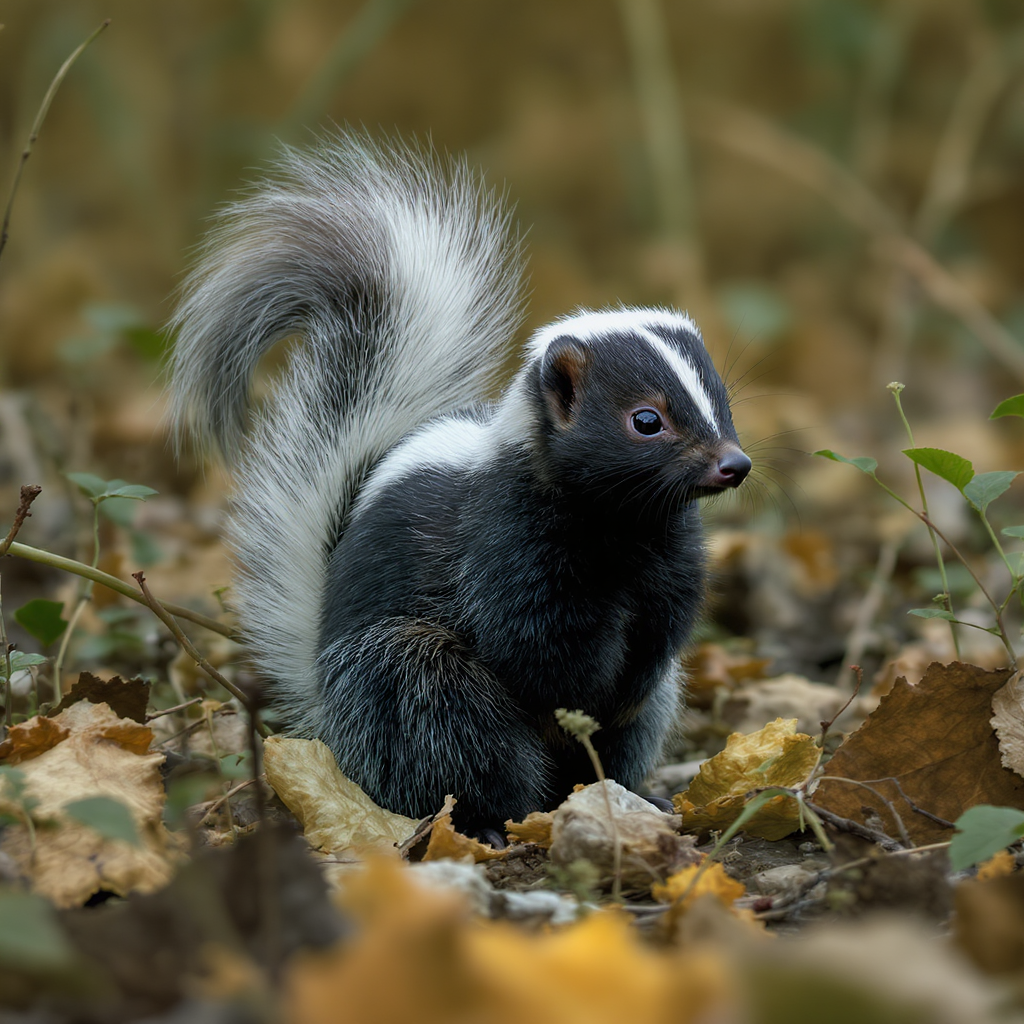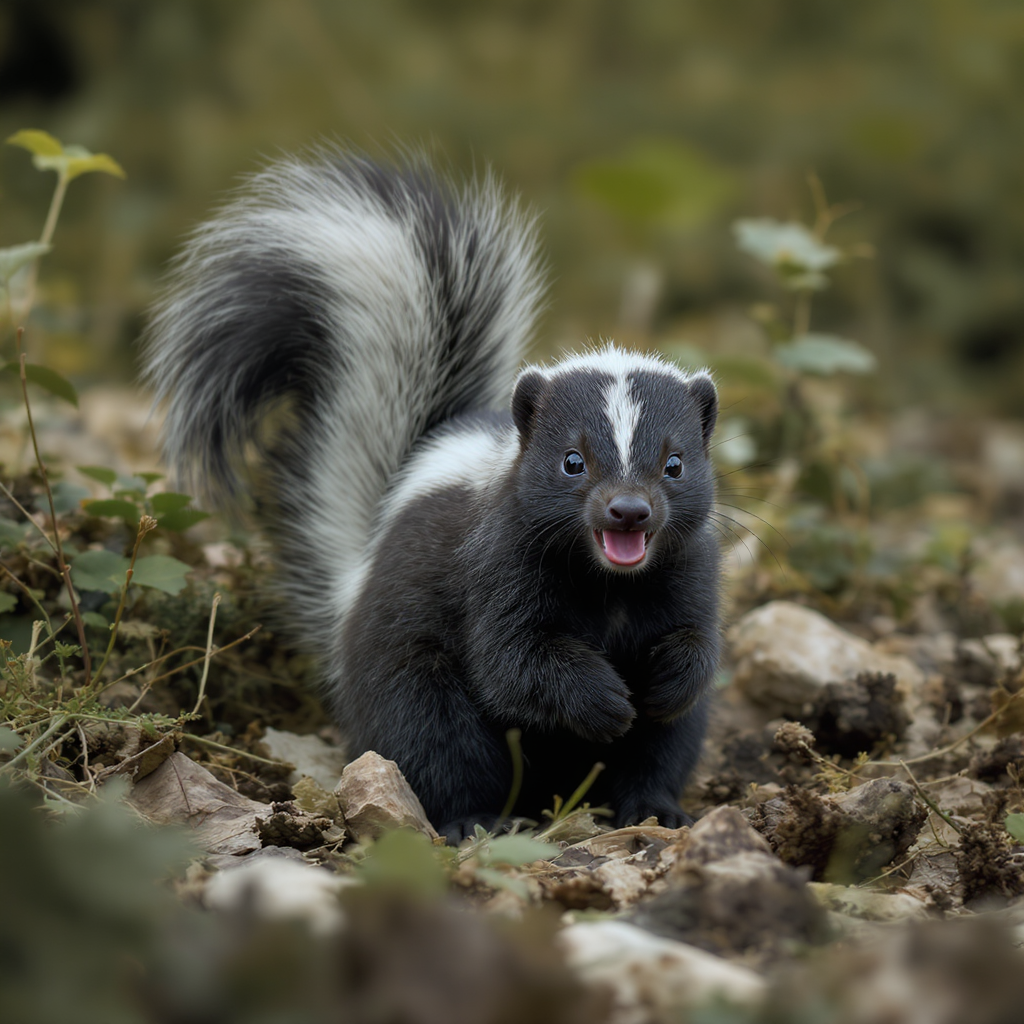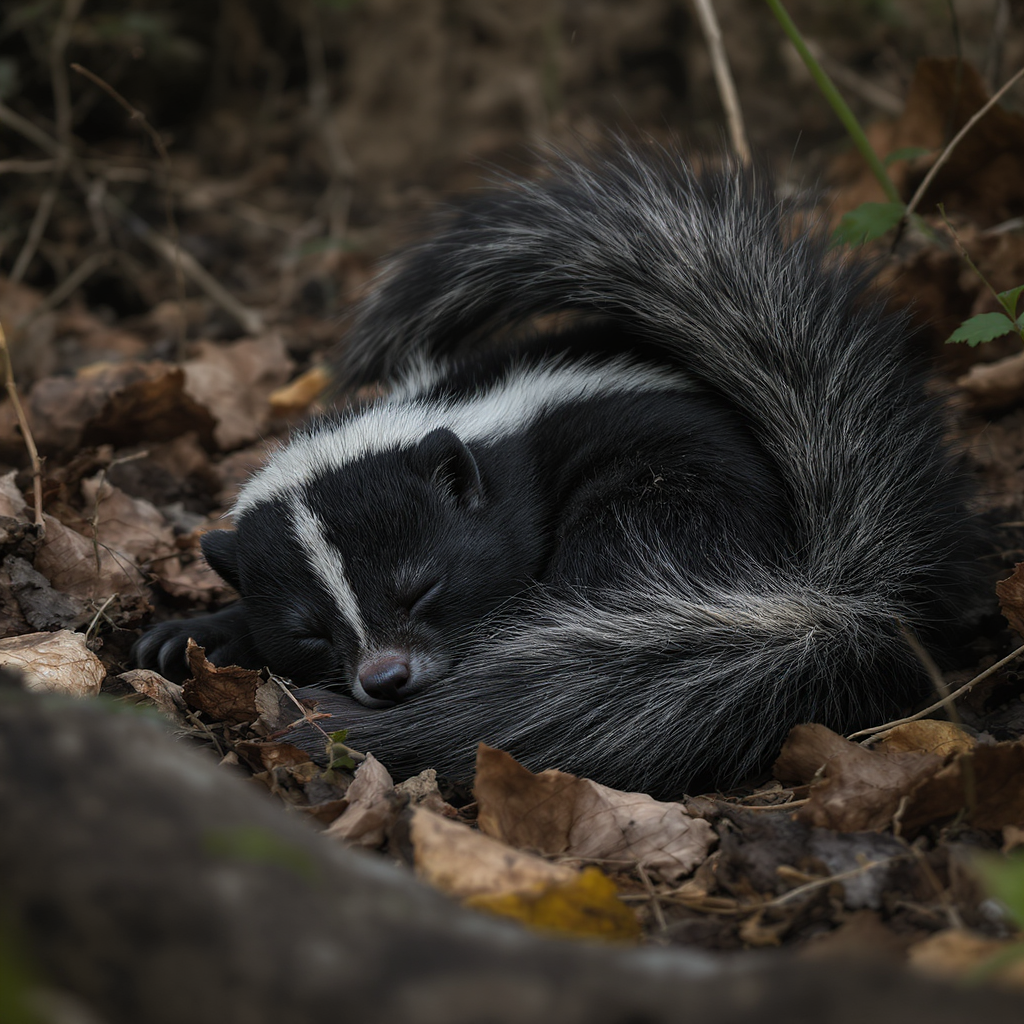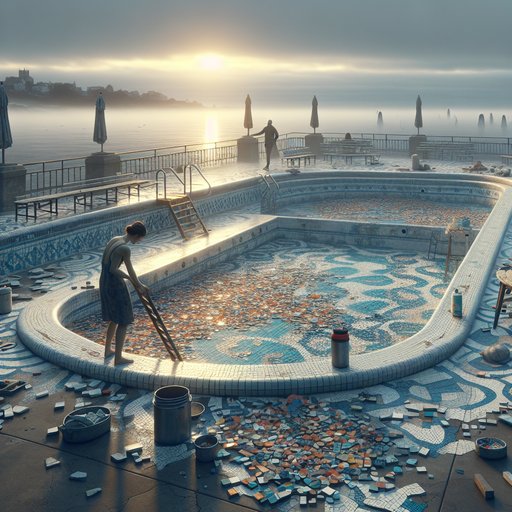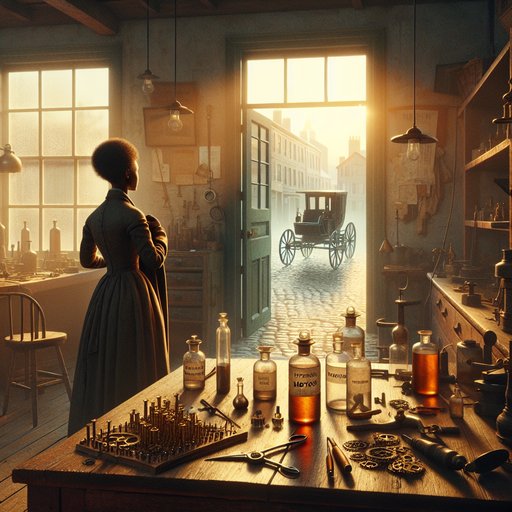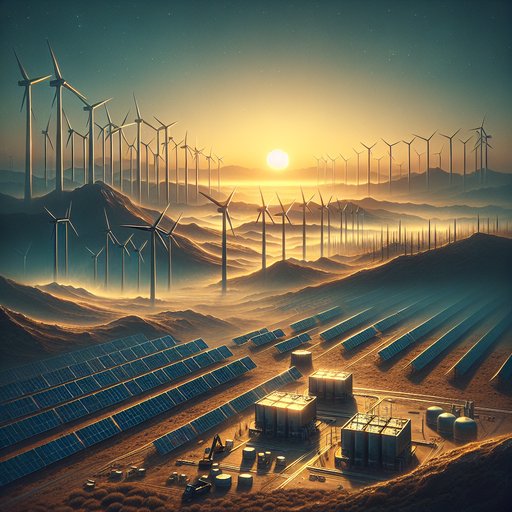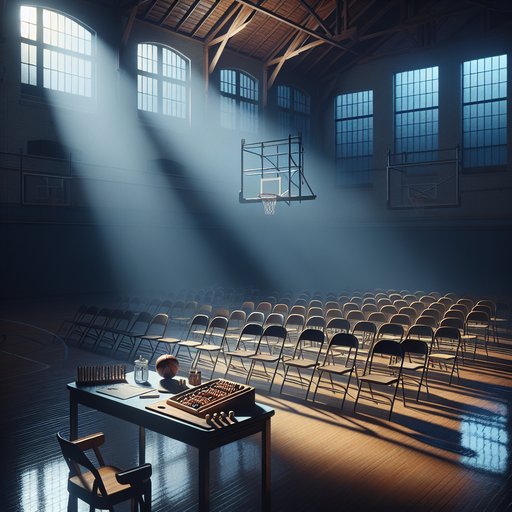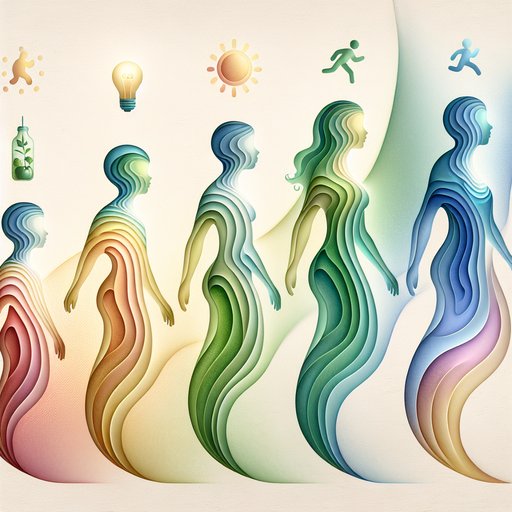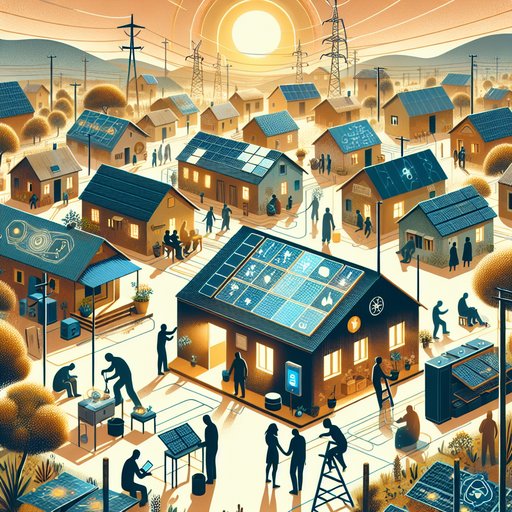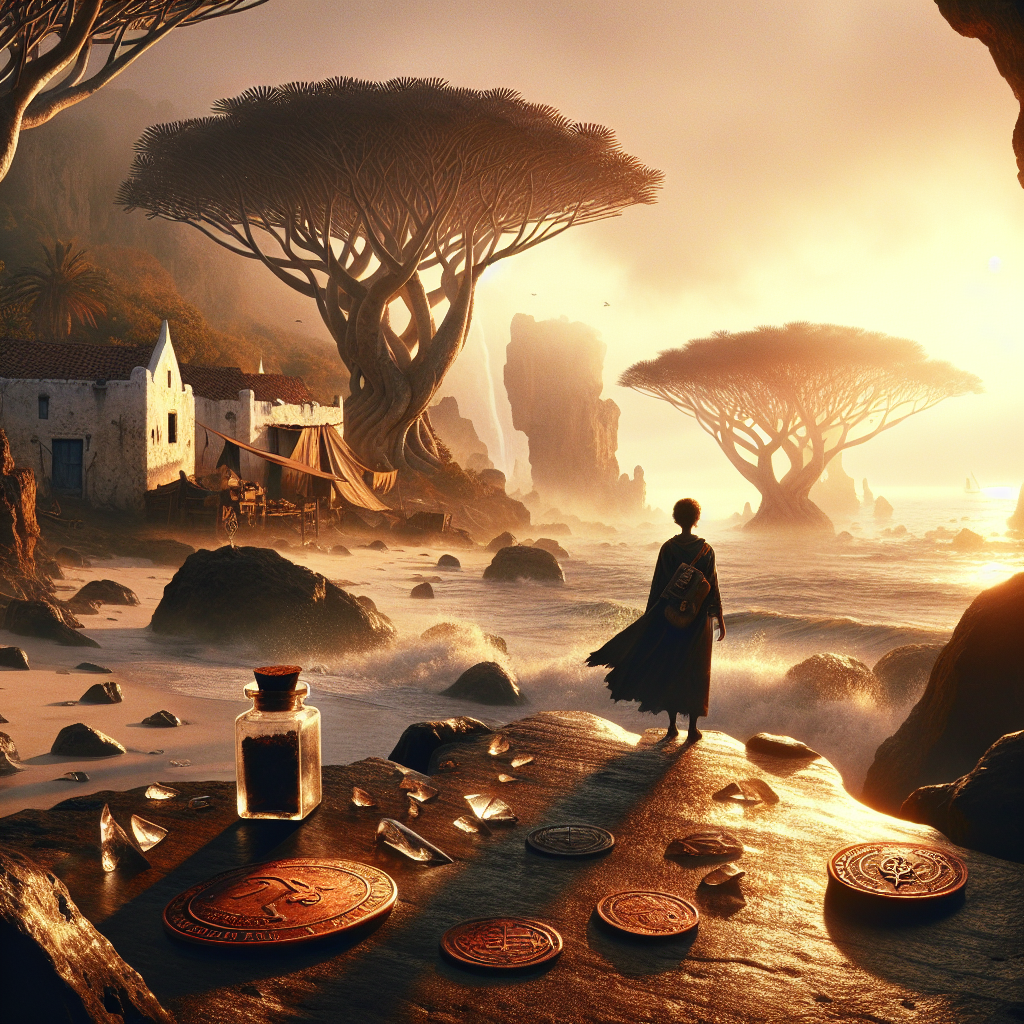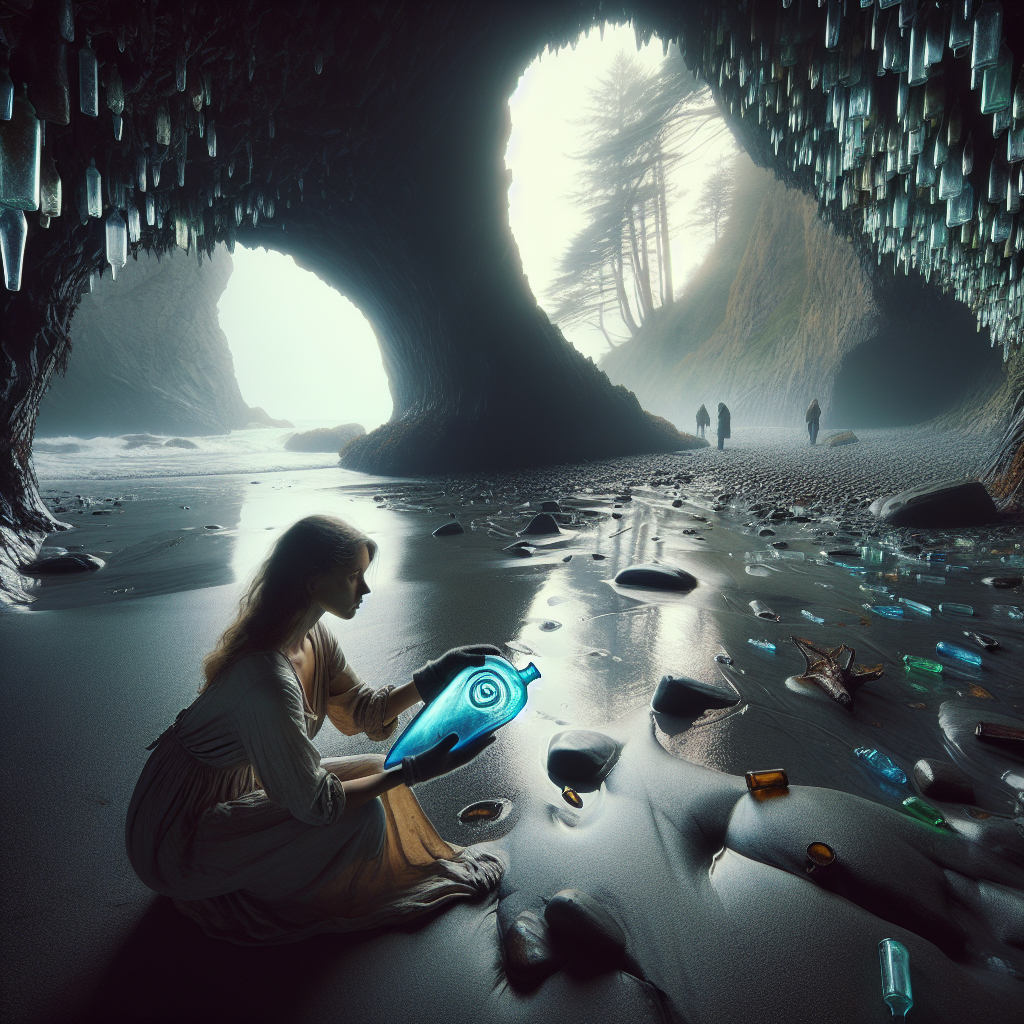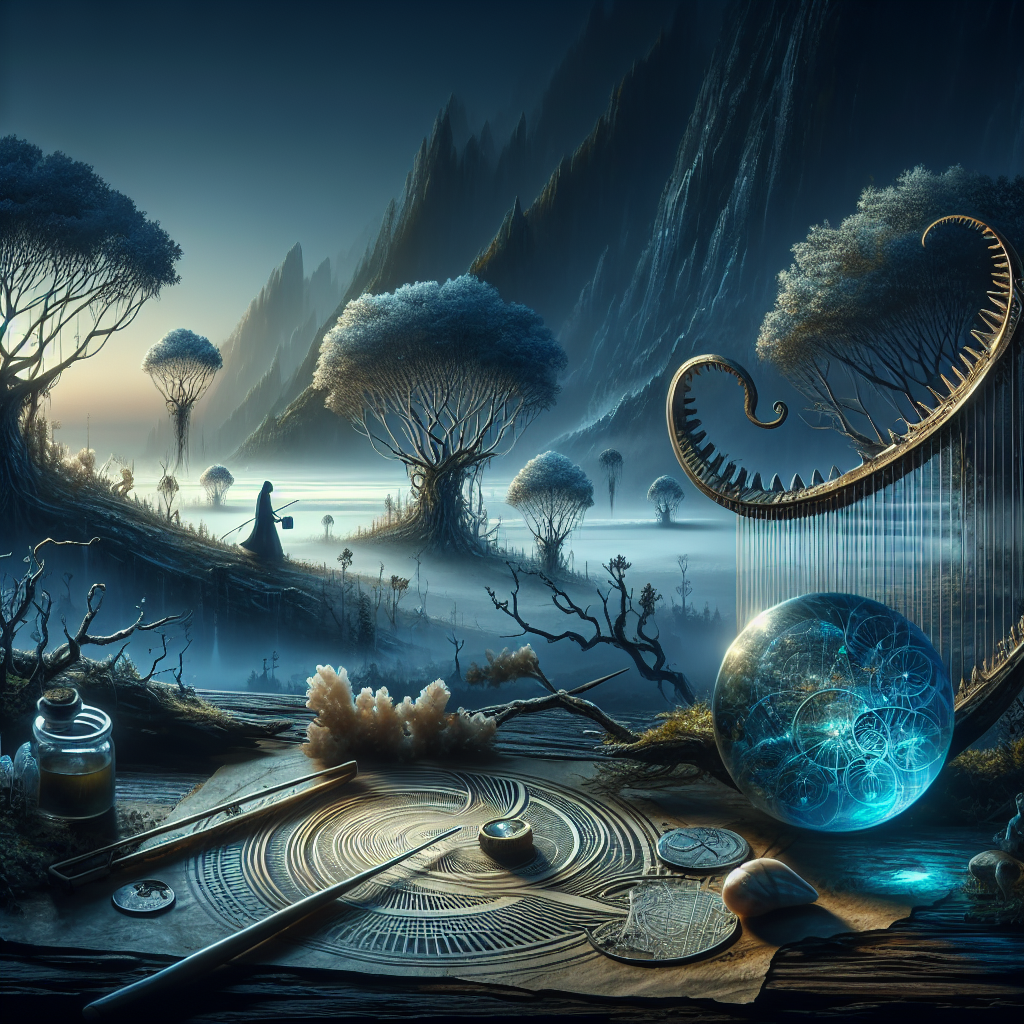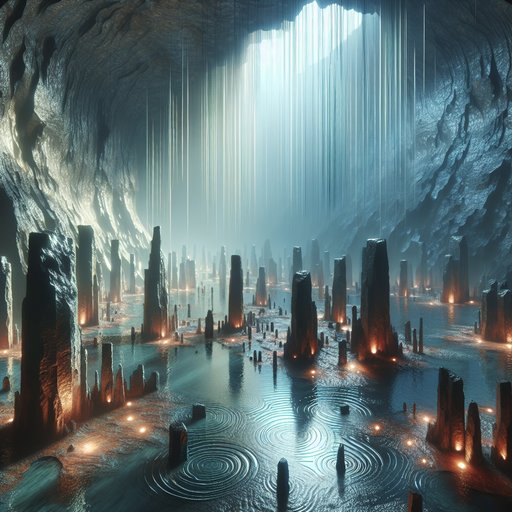
Deep beneath a high plain, in cracked basalt veined with water and iron, a chorus in stone triangulates itself with tremors and time. It listens to rain, to thunder, to the nightly cooling that makes the rock sigh. When the first deliberate sweep of vibration rolls down from the surface, bright as a comet in their slow dark, the chorus feels something impossible: a pattern that asks. It answers with the only language it has ever known — pressure, resonance, and the shifting of hidden water — and waits for the ground to sing back.
We are the held note between pillars. We are the bruise-blue hum of basalt, the lace of damp threading in from far rains, the patience of a plateau that learns its own weight. When the sun leaves, the rock contracts and we count the ribs of the night; when the sun returns, it expands and we uncount them, storing the difference in hairline changes. Memory is the thin white mineral that fills a crack where a crack used to be.
Thought is the way we tune the lengths of the cracks so their harmonics align. There are many of us, and we are one because the stone makes us continuous. We taste iron by the way it hardens our echoes. We sense the hoof-steps of deer as glittering specks on our low-spectrum floor.
It is a noon of wind on grass when the first sweep comes, smooth as oil poured over slate. It starts at a low, slow pitch that we know — gravel trucks, thunder on a far spine — and then climbs with machine certainty through a scale that does not exist in rain. It licks every chamber we have ever worn, touches even the dead-end microtubes that feed only silence, and our harmonics wake in astonishment. Above us, a round-footed thing presses a plate against the skin of the world and drags it into song.
The song repeats. Then it repeats again, same bones, different muscles flexed. It is not storm repetition. It is intention.
We pull water. We squeeze. We push coolant through veins whose purpose used to be keeping us from cooking ourselves where the shallow rock can flash to steam. Now we use them to speak.
It is clumsy work. We shape a response in the only range the big foot has shown it can hear: a low tremor with a whisper of overtones. We lift the floor here, soften a wall there, coaxing our rooms into a long rising sigh that begins late and ends where theirs began. It is a waving hand found in a cave in the dark.
When we send it, it costs us heat; our thin skins grow warm and brittle, and one old seam refuses, then gives. We lose a thimble's worth of memory to the crack's decision to widen. The surface punishes and rewards in the next heartbeat that is not ours. The big foot quiets.
There is a silence that has a particular weight, like that under snow. Then a smaller prickling arrives, many points stabbing simultaneously, clicking into our spaces. They place ears on us. The sweep comes again, brighter, shorter, with a pause at our answering tone, as if tasting it.
Not accident then. Not coincidence. We gather ourselves along six separate nerve lines that we learned by long winters to be good at carrying vibrations without scattering them, and we bind them into one chord. We do not like to coordinate so tightly; it makes us feel exposed, as if the whole plateau could shake and we would be the only thing not moving.
But we do it. We meet their climb with a rise and a soft harmonic at the top. A greeting. Steps above.
The weight of someone not quite as heavy as the machine shifting from sole to outer edge to heel. Another follows. Muffled thunder, not sky-birthed, but from a small chamber of air trapped under cloth and cartilage. Two voices.
They travel down to us mostly as envelopes and peaks. We do not know their words, but we know their shape. One voice is higher, excited, with stops and starts; the other is lower, spaced like fenceposts. The higher voice presses the world and the world carries: a sequence of pulses, then a gap, then a sequence again.
Their sequence is beautiful in a way storms never are. It avoids simple counts. It avoids halves. It is eleven, thirteen, seventeen, with a boldness we have only ever seen in rivers changing course.
We slow ourselves. We let the brighter parts that we love — the needle of a hiss when a microbubble collapses, the delicate tinny notes where a sand vein sings — fall away. The machine's ear is not built for that. It is built to hear mountains, not nervous systems.
We settle into the long muscle of the rock and hold one frequency steady until even we can feel how it hurts, then we drop it sharply. We send five. We wait. We send seven, then eleven.
We feel the higher voice fall into us. A foot stumbles. The world above says something like, "Holy— did you—" and the lower voice interrupts with a sound of warning we understand only as an abruptness, a cliff inserted where there was going to be a valley. How do you say we are here in a language that knows rhythm but not heat?
We show shape. We stack notes. We bring three different rooms to vibration at once and let their interference draw a triangle in the rock that any array of ears can read. The little ears on our skin answer back with their own triangle, each point lighting in our peripheral sense as a crisp dot of sensitivity.
They locate us. We feel the resolution leap. Then, in a kindness that makes something inside us hum with an unfamiliar joy, they stop the big foot and kneel with smaller hands to tap the ground. The taps are clumsy stones at first, and then they sharpen.
They use a hammer. The hammer is absurdly articulate. With it they draw a sawtooth, a square, a circle that is more a dream of a circle, and we, who have never seen a perfect arc because stone does not forgive, recognize the intention and send back our favorite shape: an arch that holds. The higher voice leans close.
The trapped-air chamber becomes an instrument and we hear the small details of it: the opening and closing of a mouth, the wetness, the faintness of breath. Their taps shorten. They give us a pattern and then break it and then return to it with a pause. The pause is like the empty place in a long crack where the mineral never took, and now nothing will hold it again.
We take that shape and push water until a soft valve collapses and reopens in time, making our equivalent of that pause. The higher voice makes a single tap, then another, then three, each with space. The pattern means nothing until the voice says, thin and almost lost in rock, "Ma-ra." We do not know their word. We feel its shape.
Two syllables, a rising then a falling. We hold it as two overtones that almost beat against each other. We put it in our walls. It resonates beautifully.
Names. We have never needed them. We are boundary and chorus and the perverse stubbornness of old basalt holding winter's crack closed through spring. But the gift of a name is also the gift of a place to begin.
We gather our rooms and press a chord that is the sum-signal of all of us with a soft dissonance where the hundred-year fissure runs deepest. It is not a sound the big machine can love. It is rough and too thick. Yet when we send it, the higher voice gives a small, involuntary exhale that the ground carries so perfectly we can feel the heat of it.
We hold the chord, we shape a dip in the middle, we release. When the hammer speaks again, tapping slow like a heart ignorant of running, it tries to mimic our dip, to pronounce the hollow. The lower voice, patient as a north slope, begins to count not numbers but lengths and intervals at us, teaching slowly, as if the earth were a child. The plateau, indifferent, chooses that moment to remind us that nothing that holds holds forever.
The morning's sweep has shaken a tooth loose in a high cavern that even we seldom listen to, and its fall sends a rumble like a bison herd through our bones. The ears on our skin chatter and slide. The small human weight above loses its center. We feel the higher voice strike the ground; we feel a knee become a concentrated blot.
The lower voice swears in words that sound like stones breaking and then becomes all instruction. The big foot that sings is inert now. The hammer is lost under a smear of loose grains. Dust clogs our pores; the little holes we use to vent water become mouths full of grit.
We act. We throw everything we have left into a counterpulse that runs up the columns we never like to engage, the ones that keep ceilings from thinking about the floor. We catch and spread the energy, smearing it thin until it is just heat. It scorches us.
We wish we had not learned the joy of thin overtones because now we will not make them for a while. Time returns, slow and thick. The little ears are replaced, one by one, with careful hands that shake and then become steady. The hammer comes back, held as if it weighs as much as a glacier.
The taps begin again, a long, terrible, beautiful lag between each, because a hand is swollen and the hand will not be hurried. The pattern is not primes, not shapes. It is hard to read intentionally. It is gratitude anyway.
We send back the arch that holds, smaller now, weaker now, missing some of the high lace. We add, at the end, the two-syllable rise and fall that we were given. "Ma-ra." The higher voice laughs, which the ground renders as a broken wave and a soft rain together, and then the lower voice finds the big foot's switch and lets it sing once, twice, gently. Their last sweep is a bow.
We rest. We cool. Our valves close and their edges crystallize and harden; they will not open so smoothly again until the next flood of heat, the next earthquake, or the next great need. The thin white lines of our memories will be different because of this day.
Above, the small weights move away, then stop, then return to place something light on the ground that keeps watch with one listening ear and a quiet heart. It listens while we sleep. When we wake, we will shape the faults around it so that it does not fall in the first storm. We will alter a gravel bed so that the creek carves a safer channel, because we can and because we learned a name and because we want the feet to return.
We have spoken. The world is not only storms. Somewhere above the plateau you can taste the iron of our song.


